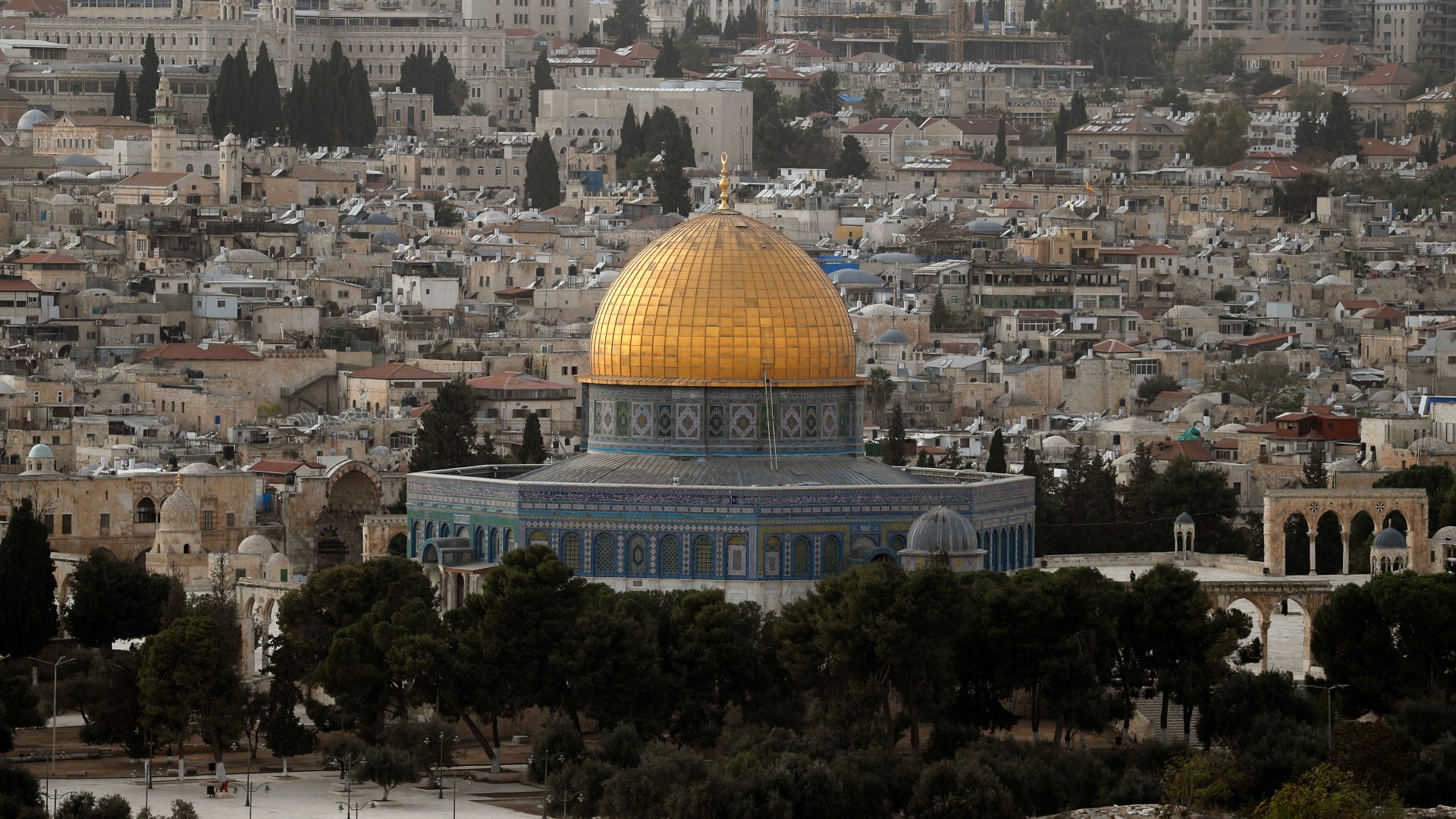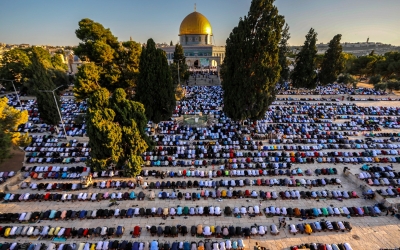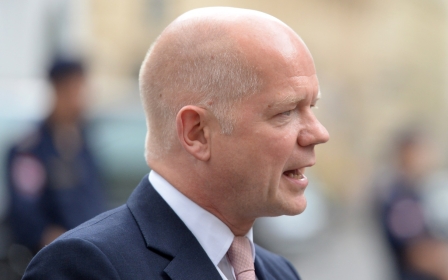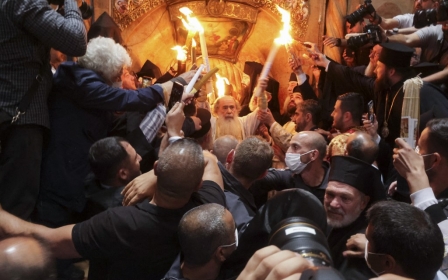Muslim leaders in Jerusalem write to King Charles III condemning Israel embassy move

Senior Muslim leaders in Jerusalem have written to King Charles III expressing “deep concern” about UK Prime Minister Liz Truss’s decision to consider moving the British embassy from its current location in Tel Aviv, in a letter seen by Middle East Eye.
At a meeting with her Israeli counterpart, Yair Lapid, on the sidelines of the United Nations General Assembly in September, Truss said she was considering moving the embassy to Jerusalem. She later announced that she had launched a review into the issue.
A statement addressed to Britain's new monarch written by leaders of the Islamic Waqf, a Palestinian-Jordanian body that runs the affairs of al-Aqsa Mosque in occupied East Jerusalem, and the current and former grand muftis of Jerusalem and Palestine, Sheikh Mohammad Hussein and Sheikh Ekrima Sabri, respectively, condemned the potential relocation.
“Jerusalem has been a great example of coexistence and peace between its religious communities for centuries,” the joint letter said.
“The International Community, including the United Kingdom, recognised the special historic and legal arrangement, also known as the 'Status Quo' since 1852.”
The letter stated that the special status of protecting the rights of different religions continued until 1967, “when Israel started to impose many unilateral measures in favor of its Jewish identity/community”.
It explained that the international community, through multiple United Nations resolutions, has denied Israel’s unilateral measures, and called for the conserving of the pre-1967 status quo.
“We oppose moving the British embassy to Jerusalem since we understand it, as a message to the universe that the UK, in contrary to the international law and the Status Quo, accepts the continuing Israeli illegal military occupation of the Palestinian territories, the Israeli unilateral annexation of East Jerusalem and the Israeli illegal Judaisation measures in the Holy City.”
It added that the move undermined a two-state solution and would inflame religious conflict in an “already unstable situation in Jerusalem”.
In response to the letter, a spokesperson for King Charles told Middle East Eye that this was "a matter for the UK government".
King Charles III visited Jerusalem as Prince of Wales in 2020, when he expressed sympathy for Palestinians and wished them "freedom, justice and equality" in the future. His admiration and knowledge of Islamic history and theology have also been well documented.
Condemnations
The letter is the latest in a long list of statements from senior religious figures to condemn the potential move.
On Monday, Christian leaders in Jerusalem described the review as a “further impediment to advancing the already moribund peace process”.
A spokesperson for Justin Welby, the archbishop of Canterbury, told Middle East Eye last week: “The archbishop is concerned about the potential impact of moving the British Embassy in Israel from Tel Aviv to Jerusalem before a negotiated settlement between Palestinians and Israelis has been reached.”
In addition, Cardinal Vincent Nichols, the most senior Catholic leader in the UK, said he saw “no valid reason” for the move, describing it as “seriously damaging”.
A briefing note circulated by the lobbying group, the Conservative Friends of Israel, to affiliated Conservative members of parliament stated that the UK government already owned land in west Jerusalem earmarked as a site for a new embassy.
In a shock intervention on Tuesday, former UK foreign secretary William Hague - who is an ex-Conservative Party leader - said moving the embassy would align Truss's government with former US President Donald Trump.
Trump broke with international convention by moving the US embassy in Israel to Jerusalem in 2018 - a move which was then condemned by the British government.
Only three other UN member states have embassies in Jerusalem: Guatemala, Honduras, and Kosovo.
This article is available in French on Middle East Eye French edition.
Middle East Eye propose une couverture et une analyse indépendantes et incomparables du Moyen-Orient, de l’Afrique du Nord et d’autres régions du monde. Pour en savoir plus sur la reprise de ce contenu et les frais qui s’appliquent, veuillez remplir ce formulaire [en anglais]. Pour en savoir plus sur MEE, cliquez ici [en anglais].





